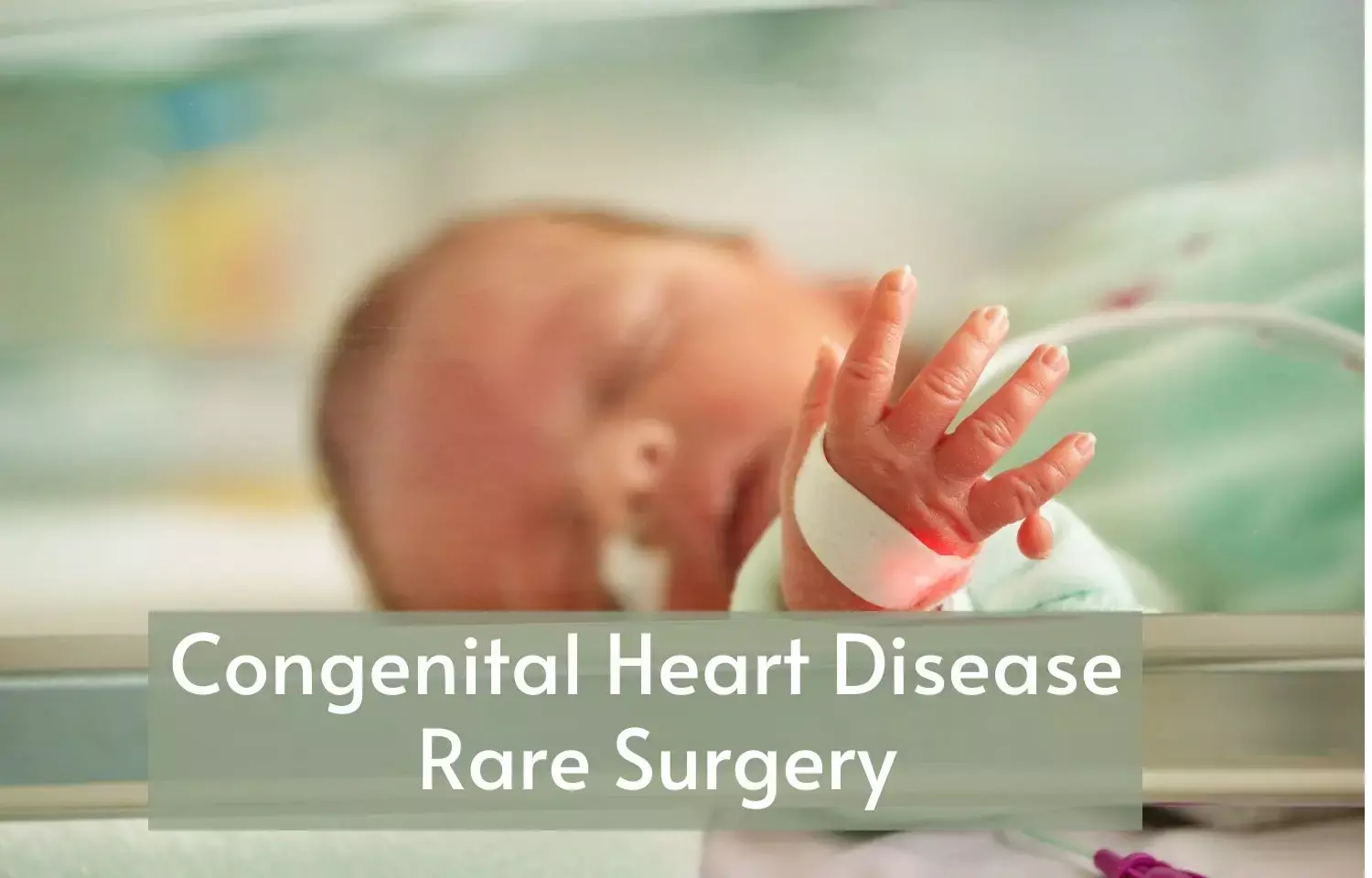- Home
- Medical news & Guidelines
- Anesthesiology
- Cardiology and CTVS
- Critical Care
- Dentistry
- Dermatology
- Diabetes and Endocrinology
- ENT
- Gastroenterology
- Medicine
- Nephrology
- Neurology
- Obstretics-Gynaecology
- Oncology
- Ophthalmology
- Orthopaedics
- Pediatrics-Neonatology
- Psychiatry
- Pulmonology
- Radiology
- Surgery
- Urology
- Laboratory Medicine
- Diet
- Nursing
- Paramedical
- Physiotherapy
- Health news
- Fact Check
- Bone Health Fact Check
- Brain Health Fact Check
- Cancer Related Fact Check
- Child Care Fact Check
- Dental and oral health fact check
- Diabetes and metabolic health fact check
- Diet and Nutrition Fact Check
- Eye and ENT Care Fact Check
- Fitness fact check
- Gut health fact check
- Heart health fact check
- Kidney health fact check
- Medical education fact check
- Men's health fact check
- Respiratory fact check
- Skin and hair care fact check
- Vaccine and Immunization fact check
- Women's health fact check
- AYUSH
- State News
- Andaman and Nicobar Islands
- Andhra Pradesh
- Arunachal Pradesh
- Assam
- Bihar
- Chandigarh
- Chattisgarh
- Dadra and Nagar Haveli
- Daman and Diu
- Delhi
- Goa
- Gujarat
- Haryana
- Himachal Pradesh
- Jammu & Kashmir
- Jharkhand
- Karnataka
- Kerala
- Ladakh
- Lakshadweep
- Madhya Pradesh
- Maharashtra
- Manipur
- Meghalaya
- Mizoram
- Nagaland
- Odisha
- Puducherry
- Punjab
- Rajasthan
- Sikkim
- Tamil Nadu
- Telangana
- Tripura
- Uttar Pradesh
- Uttrakhand
- West Bengal
- Medical Education
- Industry
Doctors at Indraprastha Apollo Hospital perform surgery to treat Rare Congenital Disorder in 3-month old infant

New Delhi: In a rare case of congenital heart disease, 3 months old Priyansh was successfully operated at Indraprastha Apollo Hospitals in New Delhi. The child was born with a complication called, Obstructed Total anomalous pulmonary venous connection - a cyanotic heart disease, a heart defect in which the children are born which can change the way blood flows through the heart and lungs.
It is a defect where the red or oxygenated blood do not reach the heart to be supplied to the body but joins with the veins. Hence the baby survives only due to the presence of a connection with in the heart through which the red (good) blood mixes with the blue blood for survival.
Also Read:In rare surgery, Apollo doctors remove Ectopic kidney stone
In this baby this connection was also very small & there was narrowing in the circuit due to which the pressure in the lungs was also very high.
As a result, the baby was blue with feeding & breathing difficulty.
After his condition deteriorated with acute breathlessness the child got admitted to a Government hospital where heart disease was suspected, his condition deteriorated further & he was brought in an emergency. On admission the child was on tube ventilation and was immediately transferred to the ICU under the supervision of Dr Manisha Chakrabarti, Senior Consultant, Pediatric Cardiology, Indraprastha Apollo Hospitals, New Delhi the baby was stabilized and his echo was done and was diagnosed with Cyanotic heart disease: Obstructed TAPVC. Surgical repair was done by our CTVS surgeon Dr. Rajesh Sharma with help of anesthetist Dr Nitya Bisarya on the same day since any delay would have been fatal. Post-surgery the child was kept on a ventilator till the time his heart and lung function stabilized.
Dr Manisha Chakrabarti, who primarily took care of the baby said,' On admission the child was very critical, breathing heavily and had irregular vitals. We immediately did an echo that revealed this rare congenital heart disorder and performed surgery on the same day.
Post-surgery the child needed to be in ICU for 11 days, under the care of our Cardiac Intensivist Dr Vishal Singh, till the time his heart and lung function were normalized completely. The baby was also given aggressive respiratory therapy. On 16th May, the child was discharged in a healthy condition.'
Out of all congenital heart diseases, this condition is one of the rarest. While there is no set reason for its occurrence, there can be multiple factors responsible like chemical exposure, genetic syndrome, and infections during pregnancy, unmonitored use of medicines by the mother.
Dr Manisha Chakrabarti stressed on the fact that such a condition has a very good future if operated on time and every effort should be taken for transfer of such babies in appropriate hands once suspicion is made. She thanked the Government doctor's initiative to stabilize the baby and motivate the parents to consent foe high risk surgical procedure.
Also Read:Robot-Assisted Cardiac Surgery on 93-year-old patient at Apollo Hospital Chennai
Medical Dialogues Bureau consists of a team of passionate medical/scientific writers, led by doctors and healthcare researchers. Our team efforts to bring you updated and timely news about the important happenings of the medical and healthcare sector. Our editorial team can be reached at editorial@medicaldialogues.in.


